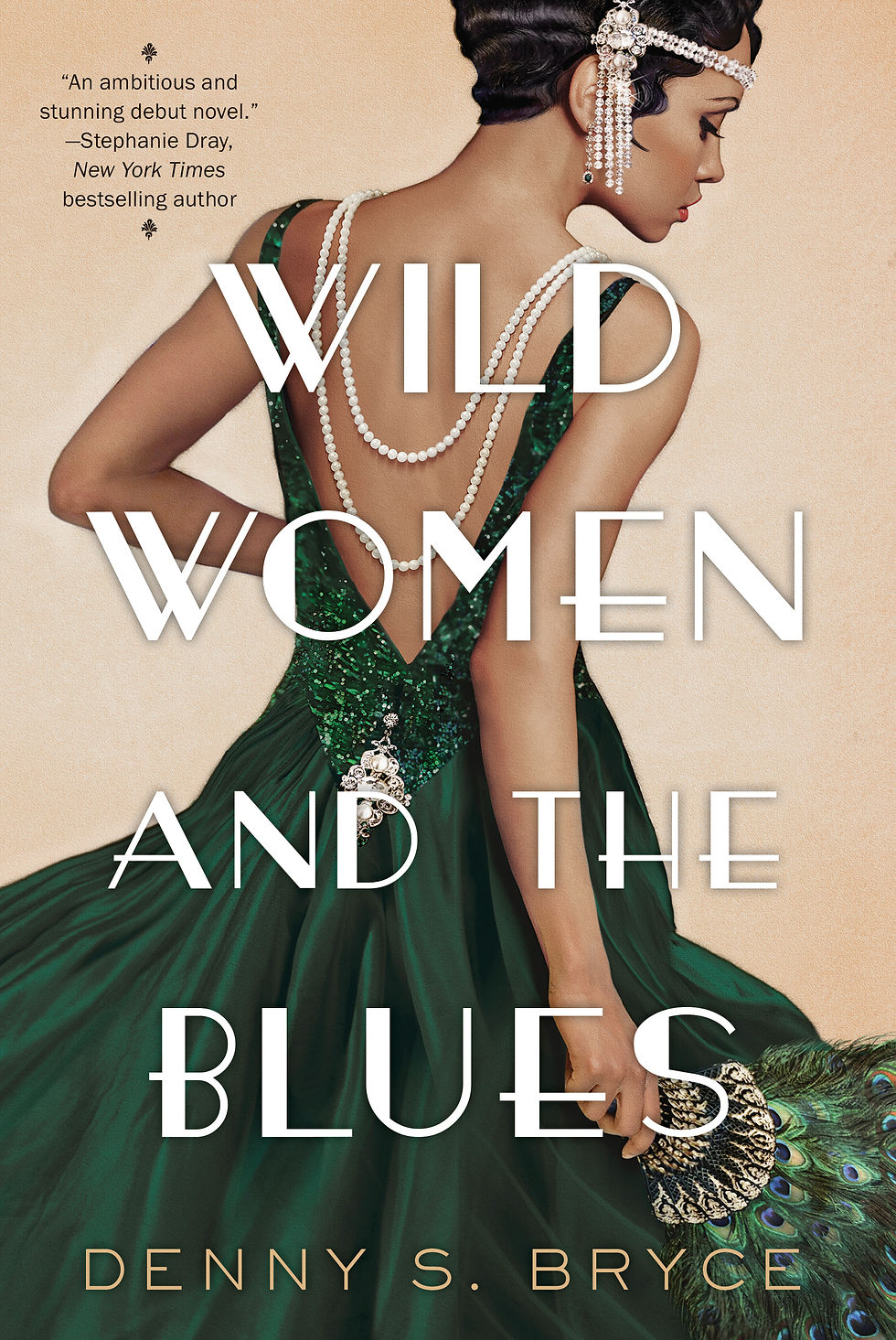Wild Women and the Blues by Denny S. Bryce
- Gabby Womack
- Aug 19, 2021
- 3 min read
Rating: 3.5 stars
Genre: Historical Fiction

Description
1925: Chicago is the jazz capital of the world, and the Dreamland Caf is the ritziest black-and-tan club in town. Honoree Dalcour is a sharecropper's daughter, willing to work hard and dance every night on her way to the top. Dreamland offers a path to the good life, socializing with celebrities like Louis Armstrong and filmmaker Oscar Micheaux. But Chicago is also awash in bootleg whiskey, gambling, and gangsters. And a young woman driven by ambition might risk more than she can stand to lose.
2015: Film student Sawyer Hayes arrives at the bedside of 110-year-old Honoree Dalcour, still reeling from a devastating loss that has taken him right to the brink. Sawyer has rested all his hope on this frail but formidable woman, the only living link to the legendary Oscar Micheaux. If he's right--if she can fill in the blanks in his research, perhaps he can complete his thesis and begin a new chapter in his life. But the links Honoree makes are not ones he's expecting...
Piece by piece, Honoree reveals her past and her secrets, while Sawyer fights tooth and nail to keep his. It's a story of courage and ambition, hot jazz and illicit passions. And as past meets present, for Honoree, it's a final chance to be truly heard and seen before it's too late. No matter the cost... ~TheStoryGraph
Review
As a fan of historical fiction, I was expecting to thoroughly enjoy this book. I was excited to read about the main character bumping elbows with Black artists I've learned about and researched in the past. While Bryce does include quite a few cameos, they were relatively small. I love that she included detailed descriptions of the fashions and decor as they helped me visualize the scenes. However, the plot dragged along for much of the book with a few moments of drama before finally reaching the big reveal.
I like that Sawyer had to reveal more about himself in order for Honoree to reveal herself. This pushed back at Sawyer's attitude of being entitled to Honoree's story simply because his grandmother paid her bills and she was a witness to the history he was researching. However, I was under the impression that her story would not begin in the book until she wanted to tell it. Instead, young Honoree is introduced in the second chapter and continued in between Sawyer's reflections.
Bryce spent a lot of the book dealing with Sawyer's demons and the beginning of Honoree's experience performing on The Stroll. Unfortunately, the pacing made it hard for me to fully enjoy this novel. I lost interest in the tale more than once despite the small cliffhangers at the end of a few chapters. I found young Honoree to be a bit annoying because of her bad decisions. I have a hard time reading characters who make mistakes that seem glaringly obvious to me. Of course, she's quite young, so I tried to refrain from judgment. The only way I can describe the story arc is visually to check this out:

I toggled back and forth between listening to this as an audiobook and reading my physical copy. The only issue I had with the audiobook was that the narrator's voices for the young Honoree and her friends made them sound like old folks when they were only supposed to be between the ages of 16 and 21.
While I loved Bryce's depiction of an eclectic Black woman as the librarian and archivist, I caught one little inaccuracy: the U.S. census is not open access after the 1940s, so they would not have been able to find Honoree's census records in the 1980s.
Verdict:
This was a good book, but I would probably only recommend it to folks who don't mind slow build-ups in their Historical Fiction.







Comments